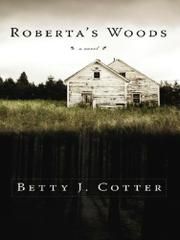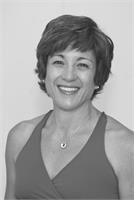 My friend and colleague, novelist Betty J. Cotter invited me to be part of the My Writing Process Blog Tour this week. Betty is the author of the novels The Winters and Roberta’s Woods. She holds an MFA in writing from Vermont College and was named the 2006 fiction fellow by the R.I. State Council on the Arts. She teaches English at Three Rivers Community College in Norwich, Conn., and creative writing and journalism at the University of Rhode Island. Her work has appeared in Bibliophilos, Grace magazine, the Ocean State Review, and the Connotation Press, and she writes book reviews for the Providence Journal. Betty is also the founder of Authors on Main, a series of free author talks in Wakefield RI. She blogs at swampyankeewoman.wordpress.com.
My friend and colleague, novelist Betty J. Cotter invited me to be part of the My Writing Process Blog Tour this week. Betty is the author of the novels The Winters and Roberta’s Woods. She holds an MFA in writing from Vermont College and was named the 2006 fiction fellow by the R.I. State Council on the Arts. She teaches English at Three Rivers Community College in Norwich, Conn., and creative writing and journalism at the University of Rhode Island. Her work has appeared in Bibliophilos, Grace magazine, the Ocean State Review, and the Connotation Press, and she writes book reviews for the Providence Journal. Betty is also the founder of Authors on Main, a series of free author talks in Wakefield RI. She blogs at swampyankeewoman.wordpress.com.
If you’re new to my blog, I blog on writing, publishing and promoting nonfiction books–primarily self-help, how-to and memoir. As part of the blog tour, I’ve been asked to answer the following questions:
1) What are you working on? At the moment, I am doing the opposite of what I recommend to participants in my Bring Your Book to Life® Program. I’m working on several projects–a couple of how-to books and even a novel. I think of the novel as a very long term project, since it’s a new genre for me.
2) How does your work differ from others of its genre? This is a great question and one I’ve been asking myself a lot lately. One thing that distinguishes good writing is a strong, and often fresh, voice. Voice needs to be authentic. Yet, I do think we can emphasize aspects of our personality for different audience or topics. So, one thing I’m working on is humor. I enjoy reading books that make me laugh and I want to entertain my readers. Humor is also a great learning tool. As an undergrad, the information I most retained and used in my first few jobs was from a class taught by Dr. Tom Allen. And the reason I retained it was that he made us laugh! So, I’m planning to take an improv class at the Contemporary Theater this fall to work on humor and spontaneity, as well.
3) Why do you write what you do? As a lifelong learner and teacher, it’s natural for me to share what I learn–from my own experiences and from my students. Teaching, coaching and writing are just part of who I am and why I’m here. I sort of stumbled into what I do after my first book, The Ultimate Guide to Transforming Anger was published, a book I co-authored with Peaco Todd and Jane Middelton-Moz. I soon realized I did not enjoy teaching anger workshops, but liked facilitating people’s connection to their creativity, their muse.

I began teaching the 5 steps I use in my own creative process and that I employed with my colleagues in writing our book and now my writing tends to be about writing, creative process and also the business of being an author.
I got my master’s from MIT’s Sloan School of Business and co-chaired the marketing club there–and I’ve won a national award in marketing. So business, and particularly marketing, is a strength of mine, something I’m writing about, and something many authors need help with. I love helping writers make more money doing what they love. Not only does it make their lives easier, but making more money often provides them more time for writing! And the money-making activities generally help them reach more readers. Plus, I see people truly step into their power when they focus on the business end of writing. So, there’s this personal growth that takes place, which is incredibly gratifying to witness.
4) How does your writing process work? I have these 5 steps I use for “Writing in the Zone.” I don’t always consciously employ 5 discrete steps but I may incorporate 2 or 3 of them in one action. The steps are:
1. Create Sacred Space: This is about stepping out of the everyday reality and into that sacred inner space that allows for creativity to flow. There are many aspects to it. Often, I create sacred space by meditating or walking in nature.
2. State Your Intention and Goals Aloud: I read my vision statement for my project aloud and then I will set a goal or intention for the period of writing–whether it be to write about a specific anecdote or write a portion of a chapter. And sometimes I just go with what’s coming.
3. Connect with Your Muse: I think of the muse as the creative part of all of us. We connect with our muse all the time. However, making a conscious connection to this aspect of yourself can facilitate flow. I also offer a free audio recording that guides you to making a connection with your muse and asking a question of your muse. (Click here to get the free meet your muse recording)
4. Enter the Flow: This step is about just writing and allowing the flow of ideas and words.
5. Give Thanks: This step is important because even if you didn’t accomplish exactly what you set out to, by focusing on the positive and what you did accomplish, you set yourself up for next time. Even if all you did was sit at your desk and not write, trust that the fallow period was needed to make space for what comes next.
Next up in the My Writing Process Blog Tour, let me introduce you to three great writers I am honored to know:
 Ginger Moran: A teacher, published writer, and single mom of two boys, Ginger’s areas of expertise are in fiction and creative nonfiction writing, editing, and creative survival. She holds a Ph.D. in creative writing, teaches at the University of Virginia and James Madison University, and have published widely . Ginger’s first novel, The Algebra of Snow, was nominated for a Pushcart Editor’s Choice Award and was published in the spring of 2012. She writes novels and essays in the morning and teaches how to write them in the afternoon & evening. “It is a heavenly life! “ You will find Ginger’s post on the tour next week at: http://www.gingermoran.com
Ginger Moran: A teacher, published writer, and single mom of two boys, Ginger’s areas of expertise are in fiction and creative nonfiction writing, editing, and creative survival. She holds a Ph.D. in creative writing, teaches at the University of Virginia and James Madison University, and have published widely . Ginger’s first novel, The Algebra of Snow, was nominated for a Pushcart Editor’s Choice Award and was published in the spring of 2012. She writes novels and essays in the morning and teaches how to write them in the afternoon & evening. “It is a heavenly life! “ You will find Ginger’s post on the tour next week at: http://www.gingermoran.com
 Cara Bradley: Cara Bradley is a passionate teacher of over 30 years. She founded Verge Yoga in suburban Philadelphia ten years ago that offers 100 yoga and meditation classes per week. She has been in the trenches of personal transformation as a teacher to CEOs, athletes, parents, and college students reaching a nationwide audience through her Verge On-Demand Classes, workshops and retreats, and talks on human potential. Her mindfulness-based techniques empower students to experience their natural presence and power. She trains the Penn State University Men’s Basketball and Villanova University Football teams. Cara writes for Elephant Journal and Women for One and is currently writing a book entitled SoulForce: Living Beyond Your Busy Mind. Cara blogs at www.carabradleyunveiled.com
Cara Bradley: Cara Bradley is a passionate teacher of over 30 years. She founded Verge Yoga in suburban Philadelphia ten years ago that offers 100 yoga and meditation classes per week. She has been in the trenches of personal transformation as a teacher to CEOs, athletes, parents, and college students reaching a nationwide audience through her Verge On-Demand Classes, workshops and retreats, and talks on human potential. Her mindfulness-based techniques empower students to experience their natural presence and power. She trains the Penn State University Men’s Basketball and Villanova University Football teams. Cara writes for Elephant Journal and Women for One and is currently writing a book entitled SoulForce: Living Beyond Your Busy Mind. Cara blogs at www.carabradleyunveiled.com
 Dylan Klempner: As the graduate programs advisor for the University of Florida Center for Arts in Medicine, a writer, and an interdisciplinary artist, Dylan shares stories and information about the growing field of Arts and Health through writing, blogging and speaking. Creativity and art making are an essential part of our overall health and happiness, particularly in times of medical crisis because they help us experience a sense of control by focusing our attention. Read Dylan’s blog on creativity and arts in medicine.
Dylan Klempner: As the graduate programs advisor for the University of Florida Center for Arts in Medicine, a writer, and an interdisciplinary artist, Dylan shares stories and information about the growing field of Arts and Health through writing, blogging and speaking. Creativity and art making are an essential part of our overall health and happiness, particularly in times of medical crisis because they help us experience a sense of control by focusing our attention. Read Dylan’s blog on creativity and arts in medicine.
Join the “my writing process blog tour” by sharing about your writing process as a comment below.



[…] then I read Lisa’s blog which ALSO inspired […]